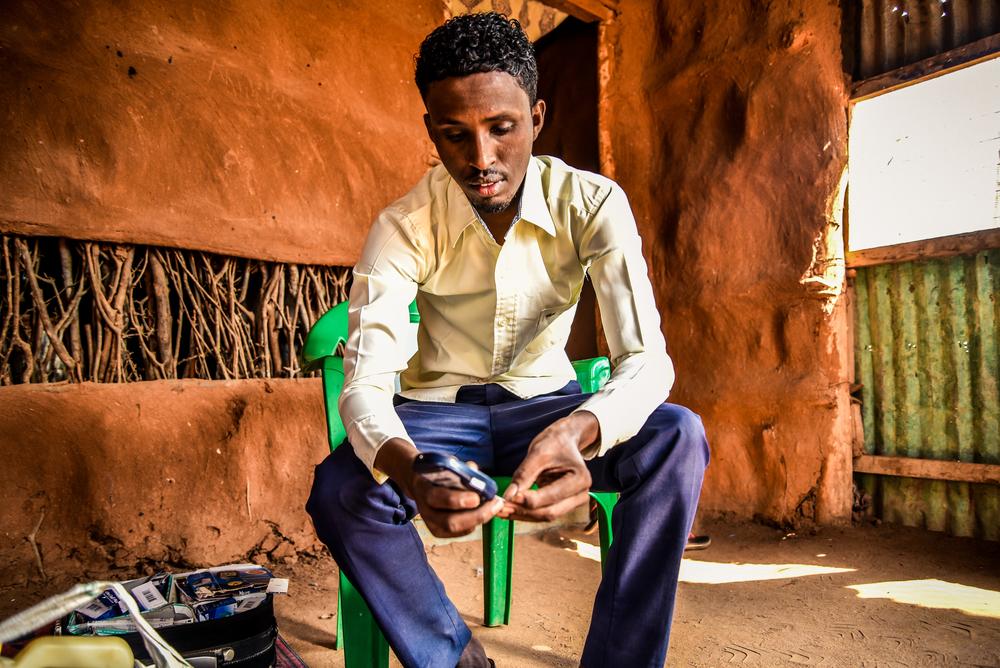The international medical humanitarian organisation Médecins Sans Frontières/Doctors Without Borders (MSF) welcomed the launch of the ‘Global Diabetes Compact’ by the World Health Organization (WHO) today and stressed the need to speed up the availability of more quality-assured sources of human insulin so that everyone in need can access this lifesaving medicine, especially people in low- and middle-income countries where the most people struggle to access insulin. Access to insulin is also critical in the context of COVID-19, considering that people with diabetes have a higher risk of severe COVID-19 disease and death.
Insulin was discovered 100 years ago, but globally, only half of people requiring it have access to this essential medicine today because of challenging storage requirements, complex treatment protocols and high prices. Today three insulin manufacturers – Eli Lilly, Novo Nordisk, and Sanofi – dominate the global market and often appear to mirror each other’s price increases. This is particularly disappointing given that the scientists who discovered insulin sold the patent for US$1 in 1921, on the understanding that the discovery of this lifesaving medicine should be available to anyone who needed it.
“Millions of people around the world already lack access to insulin to control their diabetes today, and looking ahead, the global need for insulin is expected to skyrocket, largely due to the rise of type 2 diabetes in low- and middle-income countries,” said Dr Helen Bygrave, Chronic Diseases Advisor for MSF’s Access Campaign. “To meet the growing global demand and ensure that this lifesaving drug is readily available to people who need it, WHO must urgently work to quality-assure more sources of insulin. We’ve witnessed how multiple generic suppliers helped scale-up treatment for other diseases like HIV/AIDS, and now we need to see the same happen with insulin.”
Diabetes is a chronic, progressive disease that can be controlled with effective treatment and affects nearly half a billion people worldwide. The prevalence of diabetes has nearly doubled over the past 30 years and is now rising faster in low- and middle-income countries than in high-income countries. It is estimated that by 2045 the number of people with diabetes will rise globally by 51%, with the largest increase predicted in Africa (143%).
The entry of other insulin manufacturers would result in lower prices and a more stable supply of the drug. In 2019, WHO launched its ‘prequalification’ programme to evaluate and help accelerate the quality approval of more human insulin sources beyond those from the three main manufacturers. This programme should enable countries and treatment providers to confidently procure more sources of quality-assured human insulin. However, to date, no alternative manufacturers have been quality-approved to produce human insulin. WHO must urgently prioritise and accelerate the prequalification of more insulin sources to break through some of the barriers that have kept insulin out of the hands of people who desperately need it.
“As a medical practitioner, it is disheartening for me to digest the fact that even though insulin is a century old, people continue to endure so many challenges when trying to access it,” said Dr Brian Nyagadza, Medical Activity Manager for MSF’s Mutare Project in Zimbabwe. “Barriers to accessing insulin leave many people with no choice but to ration the drug, leaving them at high risk of developing life-threatening complications related to diabetes. Urgent steps must be taken to make more versions of affordable quality-assured insulin readily available that are also suitable for the needs of people living in low- and middle-income countries, especially in the context of the COVID-19 pandemic, since people with diabetes are at higher risk of getting very sick from COVID-19.”
MSF works in over 70 countries worldwide and in most of these settings, insulin is often not available in public health facilities or private pharmacies. MSF has been engaged in providing treatment for diabetes care in multiple projects across a number of countries (including Jordan, Lebanon, Iraq, Syria, South Sudan, Democratic Republic of Congo, Tanzania, Kenya, Zimbabwe, and Bangladesh) to people living in resource-limited and humanitarian settings.
